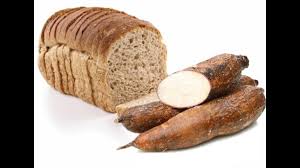Nigeria is already the world’s largest producer of cassava, and the country is well positioned to be world’s largest cassava processor in the world, as well. If Nigeria could strengthen its capacity to produce, process, and utilize more cassava flour in its bread, it would save billions of dollars annually on wheat flour imports, create millions of jobs, and empower its farmers and agricultural sector. Yet when Nigeria has tried to achieve this goal—principally through a program called the Cassava Bread Initiative (CBI)—it has failed, and the principal reason for this failure is corruption.
The first version of the CBI, then known as the Presidential Initiative on Cassava (PIC), was established in 2002 by President Olusegun Obasanjo. The government mandated flour millers to incorporate 10% cassava flour into their products and amped up cassava growing nationwide. Of the millions of dollars that Nigeria allocated to the PIC, approximately 80% went missing, and the remaining 20% was spent on building dozens of overpriced and nonfunctioning cassava processing plants. The expansion of cassava production without sufficient expansion of processing capacity led to a surplus and a price plunge. There simply was not enough domestic capacity to process the amount of cassava being produced. Nigerian farmers had wasted millions; some even lost their farms. In 2007, when Obasanjo left office, the PIC was abandoned.
In 2012, former President Goodluck Jonathan introduced a new version of the CBI. The government announced that it would replace 50% of wheat flour with cassava in three to five years, and began collecting a 15% tax on all wheat flour to fund the CBI. President Jonathan hired expensive outside consultants and public relations firms, ostensibly to support and promote the program, but it is widely suspected that these parties actually served as conduits to embezzle program funds. Additionally, political elites allegedly created at least 3,000 fake farms and fake agricultural associations, to award grants and loans to themselves. Real farmers saw less than 17% of the funds promised to them, and practically nothing was achieved for them. The policy collapsed for the second time in 2015. Still, the government kept collecting money. By 2017, the tax on wheat flour had generated at least $475 million, and by 2018, approximately $1.4 billion, even though the CBI was practically defunct. The Wheat Grain Levy Account has become a vehicle for high officials to move funds around without proper oversight (see, for example here and here).
Recently, there has been a push to launch a revised and revitalized version of the CBI (see here, here, and here). And for all the heartache the previous versions of the program have caused, this is perhaps not a completely futile endeavor. It remains the case that boosting cassava production and processing in Nigeria could be a huge game-changer. But the main lesson of past failures is that this program will succeed only if sufficient safeguards are put in place to prevent corruption. A revamped CBI should therefore include the following measures:
- First, there need to be clear mandates and restrictions regarding how specialized government accounts can be spent. Relatedly, the program should mandate that a minimum amount of program funds (say, 80%) must go to program beneficiaries, limiting the amount that can be spent on logistics, consultants, and “public relations.”
- Second, there needs to be ongoing monitoring and impact evaluation, including mechanisms to track funds, prevent waste, and screen for corruption red flags. As part of this oversight process, the Auditor General should have the authority to conduct physical visits to beneficiaries of the fund, including cassava farms, agricultural association meetings, cassava processing plants, and respective construction sites.
- Third, where possible the program funds should be transferred directly from the federal public fund account to each beneficiary, and approved recipients in the database should make their related purchases using the e-wallet mechanism, which enables recipients to access electronic vouchers via mobile phones. (This was effective in resolving a deeply 40-years corrupt fertilizer subsidy programin Nigeria). Additionally, if a high official circumvents the established procedure to withdraw from a public fund, he or she must immediately be subject to subpoena or, in extreme circumstances, impeachment.
- Fourth, there should be a thorough vetting process to verify that the recipients of the government program actually fit the criteria. Once cleared, these recipients should be placed in a secure national database to be posted publicly. Information on discretionary funding going to other recipients, such as media or consulting services, should be published to the database with the contracted company, the services provided by them, and the amount they are being paid. To promote transparency and accountability, the voucher system should post an electronic record of subsidy distribution, loan disbursement, and recipient participation.
Perhaps these lessons could be helpful in the CBI’s potential reintroduction to Nigeria—that is, if cassava farmers, after all they have lost, are still willing to give it another chance.













